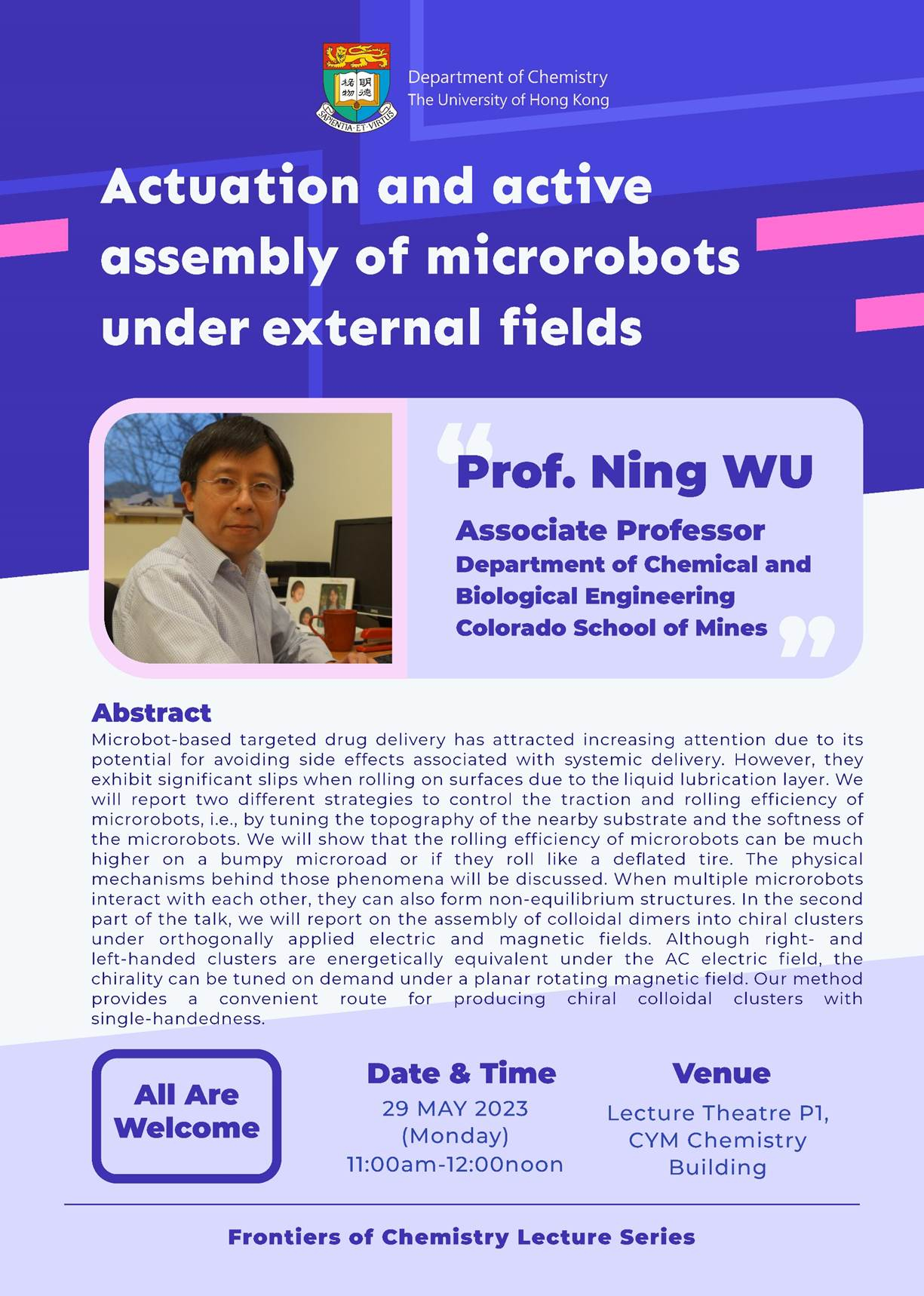| Date | 29 May 2023 |
| Time | 11:00 am – 12:00 noon (HKT) |
| Venue | Lecture Theatre P1, CYM Chemistry Building |
| Speaker | Prof. Ning WU |
| Institution | Associate Professor Department of Chemical and Biological Engineering Colorado School of Mines |

Title: Actuation and active assembly of microrobots under external fields
Schedule: Date: 29 May 2023 (Mon)
Time: 11:00 am – 12:00 noon (HKT)
Venue: Lecture Theatre P1, CYM Chemistry Building
Bio-sketch:
Dr. Ning Wu is an associate professor in the Department of Chemical Engineering at the Colorado School of Mines. He holds a B. Eng. in Chemical Engineering from the National University of Singapore and a Ph. D in Chemical Engineering from Princeton University. His research interest lies in synthesizing and controlling the structures of colloidal particles at different length scales, which are important for understanding fundamental questions in materials science and the development of microrobots, metamaterials, and colloidal emulsifiers. He received the NSF Career Award in 2015 and was recognized as one of the Early Career Authors in Fundamental Colloid and Interface Science by Langmuir in 2018. His work has been featured on the cover of AFM and Langmuir, selected by spotlights in JACS, and published in PRL, PNAS, Sci. Robot., Sci. Adv. etc.
Abstract:
Microbot-based targeted drug delivery has attracted increasing attention due to its potential for avoiding side effects associated with systemic delivery. However, they exhibit significant slips when rolling on surfaces due to the liquid lubrication layer. We will report two different strategies to control the traction and rolling efficiency of microrobots, i.e., by tuning the topography of the nearby substrate and the softness of the microrobots. We will show that the rolling efficiency of microrobots can be much higher on a bumpy microroad or if they roll like a deflated tire. The physical mechanisms behind those phenomena will be discussed. When multiple microrobots interact with each other, they can also form non-equilibrium structures. In the second part of the talk, we will report on the assembly of colloidal dimers into chiral clusters under orthogonally applied electric and magnetic fields. Although right- and left-handed clusters are energetically equivalent under the AC electric field, the chirality can be tuned on demand under a planar rotating magnetic field. Our method provides a convenient route for producing chiral colloidal clusters with single-handedness.
- ALL ARE WELCOME -
